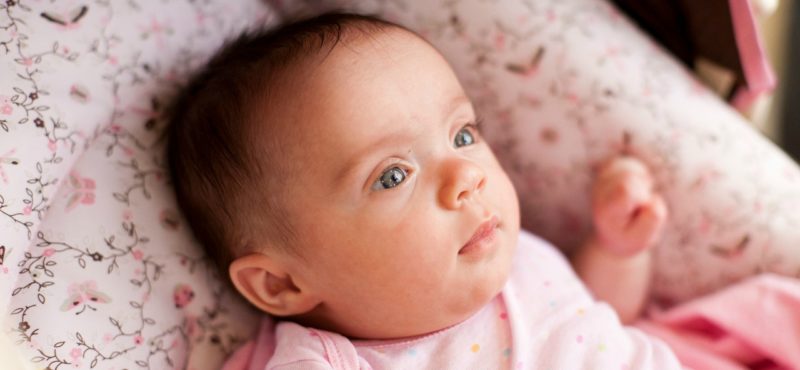Naturally, it may be regarding for fogeys to listen to their infants make noises after they breathe. One frequent situation that causes noisy inhaling infants is named laryngomalacia. This happens when the tissue above the vocal cords is floppy and falls into the airway when a toddler breathes in, which causes noisy respiratory (referred to as stridor).
For many infants, this situation just isn’t critical and can resolve by itself. Nonetheless, 15-20% of infants find yourself needing surgical procedure. If a child would require surgical procedure to deal with the laryngomalacia, we’ll often know by the point the child is about 12 months previous—give or take a number of months as a result of every child is completely different.
Indicators and Signs
Most infants who’ve laryngomalacia begin to present signs at or shortly after start. Signs could worsen a bit throughout the first few weeks of life, often round 4-6 months previous. Most kids outgrow laryngomalacia by about 9-18 months previous, as soon as the tissue within the larynx has grown stiffer.
Signs for laryngomalacia embrace:
- Noisy respiratory (stridor), a high-pitched squeaking noise you hear when your child breathes in.
- Issue feeding and gasps or chokes throughout feeds.
- Hassle gaining weight.
- Child’s pores and skin between the ribs and within the neck is being sucked in with each breath.
- Pauses in respiratory whereas sleeping.
Although your little one’s laryngomalacia could also be gentle, it’s nonetheless necessary to look at for indicators or signs of it worsening.
Extra About Stridor
Stridor may be alarming should you’ve not heard this sort of noisy respiratory earlier than. Typically it seems like a squeak or a wheeze.
A few necessary factors about stridor:
- It will probably worsen when infants are consuming and crying, as a result of they’re working tougher to breathe at these instances.
- Some infants are noisier after they’re asleep; others are noisier when awake.
- The stridor itself just isn’t the primary trigger for concern. The noisy respiratory won’t hurt your little one.
Whereas most mother and father get used to the sound of their child’s stridor, it would trigger concern in others. Share what you recognize about laryngomalacia with members of the family, daycare suppliers and babysitters. Guarantee them that the noise in and of itself isn’t scary. Educate them concerning the above indicators you might be looking forward to at house so that they know what to regulate as effectively.
Questions Your Physician Will Ask You
When your pediatrician is evaluating your child, she or he will ask a number of inquiries to assess how critical your child’s situation is. These are the sorts of questions you’ll wish to be ready to reply:
- Describe the noise you hear when your child is respiratory. When do you hear it (asleep, awake)? What makes it worse (feeding, sleeping, crying)?
- How is your child feeding? Is he gaining weight?
- What’s your child’s respiratory like when she sleeps? Does she gasp or choke? Does she cease respiratory or have pauses in her respiratory?
- Does he ever flip blue round his lips?
The solutions to those questions assist gauge additional medical care your little one would possibly want, and when a referral to an ENT specialist is important.
I understand how regarding it’s for fogeys when their child’s medical situation pertains to respiratory. I hope this data helps you are feeling empowered about what to look at for with laryngomalacia, so you are feeling assured caring to your little one.
To talk to somebody about how our ENT specialists look after sufferers with laryngomalacia, or to schedule an appointment, name 513-636-3200.

